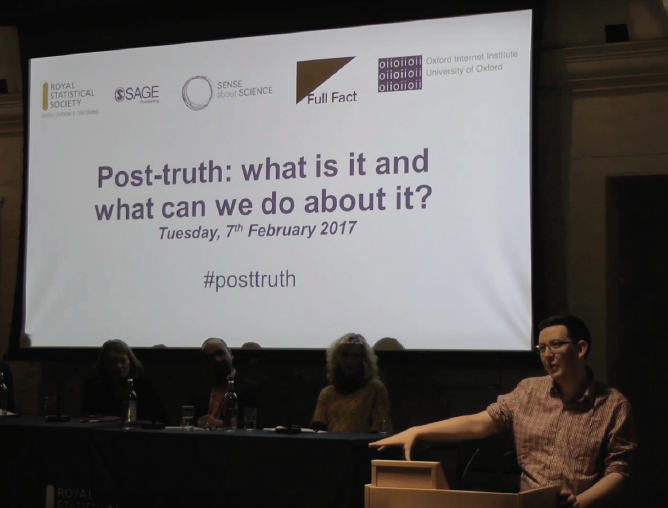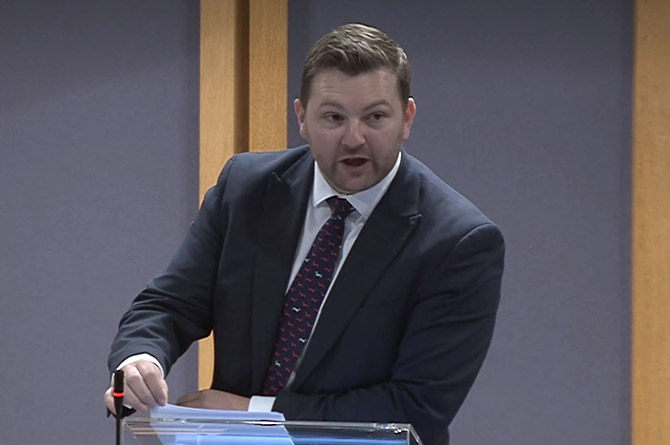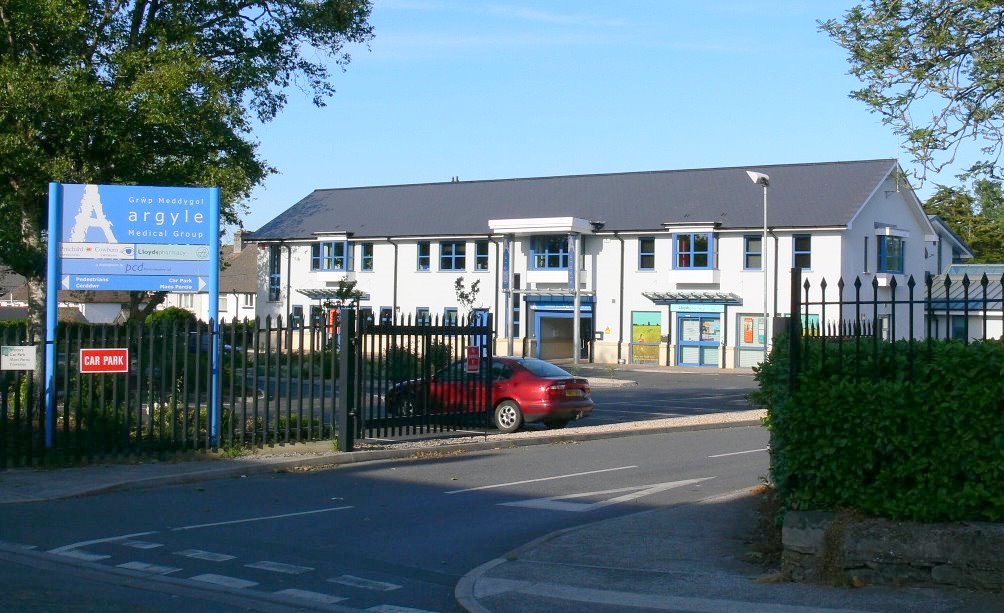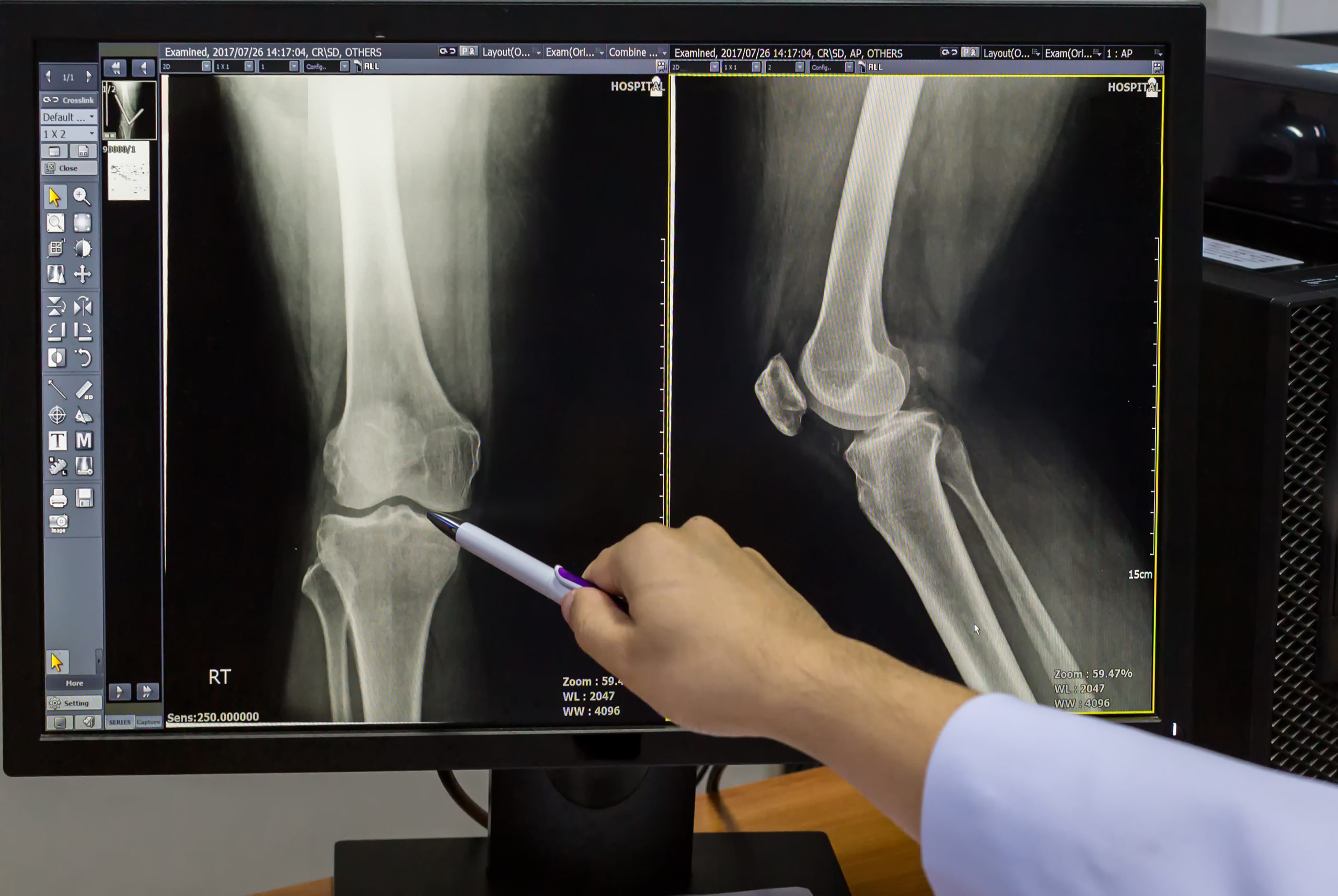Politics
When was the ‘truth’ era?

 THAT was one of the questions posed at a recent panel discussion hosted by the Royal Statistical Society to consider whether we really are in a post-truth world of ‘alternative facts’, and if so what we can do about it.
THAT was one of the questions posed at a recent panel discussion hosted by the Royal Statistical Society to consider whether we really are in a post-truth world of ‘alternative facts’, and if so what we can do about it.
These terms have become commonplace as people try to make sense of a global political landscape that looks and feels different to what many would have predicted a year ago. So it was refreshing to hear a more critical take on the concepts such as post-truth, fake news and echo-chambers.
That isn’t to say that the panellists thought all is well. It was accepted that misinformation, ‘fake news’, and a lack of regard for evidence in some quarters are issues worthy of addressing, and that it’s vital for the health of our democracy that we do so. What’s more, Helen Margetts (Oxford Internet Institute) presented a compelling case that the Internet and social media may be exacerbating the problem.
“Is anything particularly new about the challenges we face in defending the importance of facts and evidence?”
What was questioned was the notion that there is anything particularly new about the challenges we face in defending the importance of facts and evidence.
Or, to restate the earlier question – against what previous golden age of ‘truth’ are we implicitly comparing our modern era to when we use the phrase ‘post-truth’?
This sense of perspective is welcome. William Davies’ recent piece in the Guardian, which has generated much discussion in the statistical world, painted a gloomy picture of the supposedly waning power of statistics. But as the National Statistician pointed out in response, our supposedly ‘post-truth’ era is also characterised by both a yearning for more trustworthy analysis to make sense of the world and an abundance of data out there to help inform it, if only we can tap into and make sense of it.
And that is central to our mission here at the Office for National Statistics. We are constantly striving to produce better statistics to support better decisions. We have ambitious plans to harness big data and exploit its potential to help us understand the modern world. And we are always looking to better understand current and future user needs and respond to them where we can.
“We will continue to champion the value of evidence and statistics, even in our supposedly post-truth world.”
It’s not just about producing better statistics, however. There are challenges in explaining to a wide audience what the evidence says about any given issue when the matter at hand is complex, the evidence is not always clear cut, and the methodological limitations of statistics need to be made clear in the name of transparency.
The difficulty with that, as panellist James Bell from Buzzfeed explained, is that when it comes to dealing with a mass audience and a controversial issue, a simple and clear message usually beats a complex one.
Those of us working in the field of official statistics always need to challenge ourselves to communicate better and in a way that is clear and accessible. But we cannot get away from the fact that by necessity we deal in complexity and nuance, which can make it tricky to get our message across where others may be peddling a simpler line and in a louder voice.
The answer, as argued by Full Fact’s Will Moy, lies in recognising that the ONS and UK Statistics Authority, along with other bodies such as new Office for Statistics Regulation, are part of a bigger picture including civil society groups, media outlets, businesses and ordinary citizens. Working together is crucial to help people make sense of the world around them, to continue to build the case for evidence, and to challenge those who wilfully misuse or disregard it.
That’s why, for example, the UK Statistics Authority is partnering with Full Fact, the House of Commons Library and the Economic and Social Research Council on the ‘Need to Know’ project. And it’s also why the work done by organisations such as the Royal Statistical Society to improve statistical literacy is so valuable, so we can all understand the importance of evidence and challenge its misuse.
Responding to Mr Davies’ Guardian piece, the National Statistician argued that “this is the moment when we can make our greatest contribution to society” by seizing the opportunities open to us to produce the statistics that Britain needs to answer the big questions of the day. That’s something we certainly intend to do. And working with others, we will continue to champion the value of evidence and statistics, even in our supposedly post-truth world.
Local Government
£4m Plaid Cymru deal boost to Pembrokeshire council coffers

PEMBROKESHIRE’S financial situation for next year is some £4m better off after a higher settlement from the Welsh Government, but the council still faces difficult decisions, councillors heard.
While council tax makes up a proportion of the council’s annual revenue, a crucial area of funding is the Aggregate External Finance (AEF) rate from Welsh Government.
Pembrokeshire was to receive a 2.3 per cent increase on its settlement, a total of £244,318,000, amounting to an extra £5,493,000, placing it at joint 13th of the 22 local authorities in Wales.
Now, following a Welsh Government and Plaid Cymru agreement, local authorities including Pembrokeshire have received a better financial settlement.
Speaking at the December meeting of Pembrokeshire County Council, while presenting a report on the outline draft medium term financial plan (MTFP) 2026-27 to 2028-29, Cabinet member for finance Cllr Alistair Cameron said the recent rise in the financial settlement from the Welsh Government had decreased the expected funding gap for the next financial year for the county from £17.7m to £13.6m, but stressed: “There are still increased pressures we are going to have to face.”
His report for members outlined some of the pressures faced by the council in setting its budget for the next financial year.
“Based on the revised projected funding gap of £13.6m, it is evident that major budget savings as well as a significant Council Tax increase will be required in order to deliver a balanced budget for 2026-27. The lower the Band D Council Tax increase, the higher the budget savings requirement will be, with the consequential adverse impact on the provision of Council services and on the medium-term financial sustainability of the council.”
His report also noted the decision in October by members to cut the council tax premium on second homes from 150 to 125 per cent, which on its own has increased the funding gap for 2026-27 by £1.3m.
The report, listing the many pressures and potential savings, said that where possible, discretionary fees and charges income has been budgeted to increase by 3.8 per cent, with any increases above this level included as part of the budget savings options presented.
The report for members, prior to the revised settlement from Welsh Government, gave council tax increase options ranging from five to 10 per cent with 7.5 per cent highlighted as the most favoured option, the 7.5 rate equating to a £2.38 a week increase for the average Band D property; each one per cent increase or decrease in council tax being worth £0.908m for council coffers.
Leader of the Conservative group on the council Cllr Di Clements made a plea to the leader, calling on the council to use the extra money from Welsh Government to “contribute to making this authority financially sustainable in the long term,” adding: “We know it’s tough out there for our council tax-payers, let’s hopefully give them a break this year.”
Independent Group leader Cllr Huw Murphy said the better settlement was “a huge sigh of relief” for the council, adding: “The budget negotiations still won’t be any easier because we’ve had this pot of money; [but] we have to applaud Plaid Cymru on this.”
A long string of recommendations essentially noting the report, but including the fees and charges increase, was moved by Cllr Cameron, seconded by Leader Cllr Jon Harvey, backed by members by 46 votes to one, with three abstentions.
The actual setting of the budget and related council tax level along with any potential savings and cuts, will be decided at a later date, with a public consultation running to January 4, followed by committee scrutiny ahead of Cabinet considering a revised draft budget on February 9, before it is recommended to full council on February 20.
News
Kurtz criticises Tufnell over GP pressures at Argyle Medical Centre

Local MS says Welsh Government decisions are root cause of crisis
CONSERVATIVE Senedd Member Sam Kurtz has criticised Labour MP Henry Tufnell after the MP suggested GP practice management should be held accountable for patient dissatisfaction at Pembroke Dock’s Argyle Medical Centre.
Patients registered at the surgery have for years raised concerns about access to appointments, particularly difficulties securing same-day consultations and long waits to get through on the phone.

Speaking to BBC Wales, Mr Tufnell said he had discussed the situation with the Health Board’s Chief Executive and claimed the senior official “feels powerless” to intervene.
He said: “I’ve spoken to the Chief Executive of the Health Board, and he feels powerless to do anything about it. We need to come together and hold the management of these surgeries to account; there must be transparency about what they’re doing, and, fundamentally, we need reform in the system.”

Mr Kurtz responded angrily, arguing that responsibility for reforming NHS Wales rests with the Welsh Government, not GP surgeries or frontline staff.
He said: “I don’t think it’s very helpful to point the finger at the surgery and suggest the fault lies with them when staff are working incredibly hard.
“If he wants to point the finger, it should be at his Labour colleagues in Cardiff Bay, who have continuously piled pressure onto GP practices by imposing contracts that are extremely difficult to deliver. That is why surgeries like Argyle are under such strain.”
Mr Kurtz later told The Pembrokeshire Herald that the problems faced by GP practices across Pembrokeshire were the result of long-term policy failures rather than poor local management.
“As someone born and raised in Pembrokeshire, I have seen first-hand the damage caused by the Welsh Labour Government’s mismanagement of our local NHS, despite the dedication and professionalism of frontline staff who continue to do their very best in increasingly challenging conditions,” he said.
“Anyone seeking to place the blame on NHS staff should back off. The fault does not lie with them. Real improvement will only come through properly supporting GP practices, listening to their concerns and working with them rather than against them.”
Argyle Medical Group is the second-largest GP practice in Wales, serving around 25,000 registered patients with nine GPs — an average of approximately 2,800 patients per doctor. In 2021, the practice had the equivalent of 10.75 full-time GPs and was actively seeking to recruit more.
However, ongoing recruitment difficulties forced Argyle to withdraw from its contract at St Clement’s Surgery in Neyland and reduce hours at St Oswald’s Surgery in Pembroke. Following the Neyland closure, patients were transferred to the Neyland and Johnston Medical Practice, which later handed back its GP contract after retirements and further recruitment problems. Those patients are now treated by salaried and locum GPs employed by the Health Board.
Similar pressures are being felt across Pembrokeshire, from Tenby in the south-east to St Davids in the north-west. While Wales does not face “GP deserts” on the same scale as the well-documented shortage of NHS dentists, reduced access to general practice has contributed to more patients attending hospital for conditions once routinely dealt with by GPs. This has placed additional strain on hospital services and staff.
In 2018, the Welsh Government pledged to recruit 1,000 additional GPs into NHS Wales. While overall GP headcount has risen, the number of full-time GPs has continued to fall. Many newer recruits work part-time, as locums, or on limited contracts, meaning fewer doctors are available in practice on a day-to-day basis.
Newly qualified GPs have also tended to favour larger urban centres, particularly along the M4 corridor and in north-east Wales, where professional support and career opportunities are greater. Critics argue that Welsh Government recruitment and retention strategies have failed to address persistent shortages in rural and coastal communities.
There are also ongoing shortfalls in independent prescribing pharmacists and community nursing staff, limiting efforts to relieve pressure on GP surgeries.
Mr Kurtz said: “The foundation of NHS care — with GPs as the first point of contact — has buckled. Blaming GP staff is a distraction. The issues are structural, long-term and political, and ultimately the buck stops in Cardiff Bay.”
Health
NHS Wales spends more than £15.5m on agency radiographers as pressures grow

NHS WALES has spent more than £15.5 million on agency radiography staff over the past five years, as mounting pressure on diagnostic imaging services raises concerns about long-term workforce sustainability.
Figures obtained by the Welsh Liberal Democrats through Freedom of Information requests show that spending on temporary radiographers almost doubled between 2020/21 and 2023/24, despite relatively low headline vacancy rates across Welsh health boards.
Radiographers carry out X-rays, CT, MRI and ultrasound scans, which are essential to emergency care, cancer diagnosis, trauma treatment and elective surgery. Delays or shortages in imaging services can have a knock-on effect across patient pathways, slowing diagnosis and treatment.
The data also highlights an ageing workforce. More than a quarter of radiographers in Wales are aged over 50, with more than one in ten aged 55 or above. In some health boards, a significantly higher proportion of staff are approaching retirement age, raising concerns that experienced radiographers could leave faster than they can be replaced.
Betsi Cadwaladr University Health Board recorded the highest agency spend, at more than £8.1m over the period covered by the FOI requests. Other health boards also reported growing reliance on temporary staff to maintain services, particularly where specialist skills are required.
While official vacancy figures remain comparatively low, professional bodies have previously warned that vacancy data does not always reflect pressure on services, as posts can be held open or covered through overtime and agency staff rather than filled permanently.
Diagnostic imaging demand has increased steadily in recent years, driven by an ageing population, advances in medical imaging technology, and rising referrals linked to cancer and long-term conditions.
Commenting on the findings, Welsh Liberal Democrat Leader Jane Dodds MS said:
“Radiographers are absolutely vital to the NHS. From diagnosing cancer to treating people in A&E, the vast majority of patient journeys depend on timely access to scans.
“These figures show a system increasingly relying on expensive agency staff while failing to plan properly for the future workforce. That is not fair on patients, and it is not fair on staff who are already under huge pressure.
“The Welsh Labour Government must take urgent action to improve recruitment and retention, support experienced staff to stay in the workforce for longer, and ensure NHS Wales has a sustainable radiography workforce fit for the future.”
The Welsh Government has previously said it is working with health boards to improve recruitment and retention across NHS Wales, including expanding training places and supporting flexible working arrangements to help retain experienced staff. Ministers have also pointed to record numbers of staff working in the NHS overall, while acknowledging ongoing challenges in hard-to-recruit specialties.
However, opposition parties and professional bodies continue to warn that without long-term workforce planning, reliance on agency staff could increase further, adding to costs and pressure on already stretched diagnostic services.
-

 Crime2 days ago
Crime2 days agoMilford Haven man jailed after drunken attack on partner and police officers
-

 News5 days ago
News5 days agoDyfed-Powys Police launch major investigation after triple fatal crash
-

 Crime2 days ago
Crime2 days agoTeenager charged following rape allegation at Saundersfoot nightclub
-

 Crime2 days ago
Crime2 days agoMan charged with months of coercive control and assaults
-

 Crime3 days ago
Crime3 days agoMan sent to Crown Court over historic indecent assault allegations
-

 Crime5 days ago
Crime5 days agoMan spared jail after baseball bat incident in Milford Haven
-

 Crime3 days ago
Crime3 days agoMilford Haven man admits multiple offences after A477 incident
-

 Crime3 days ago
Crime3 days agoWoman ‘terrified in own home’ after ex breaches court order























